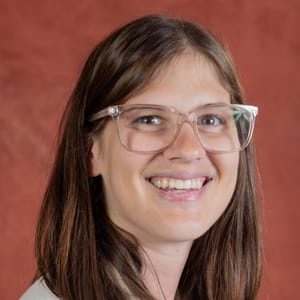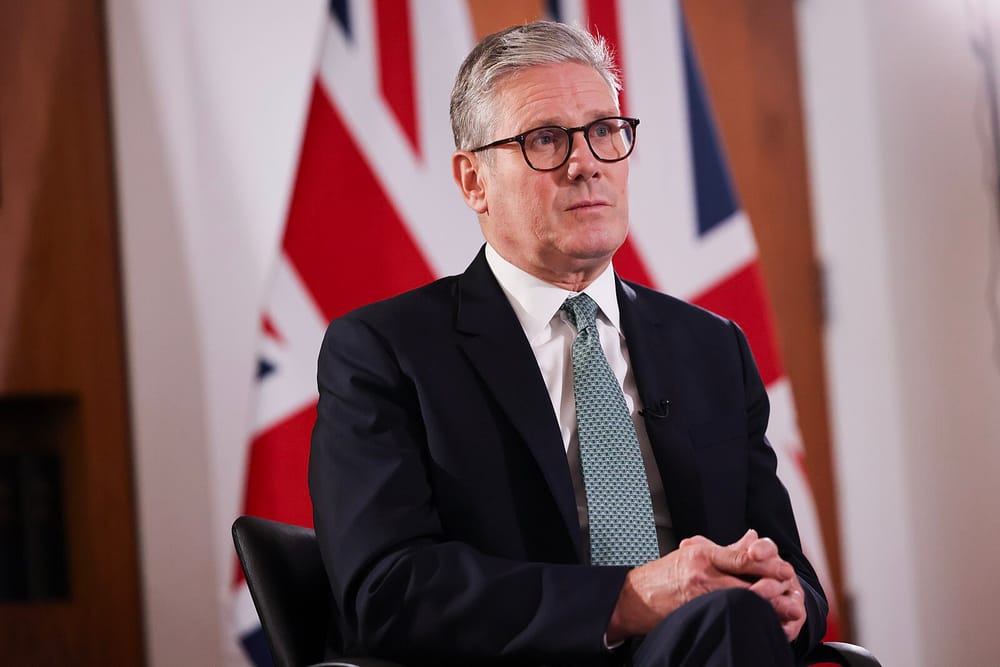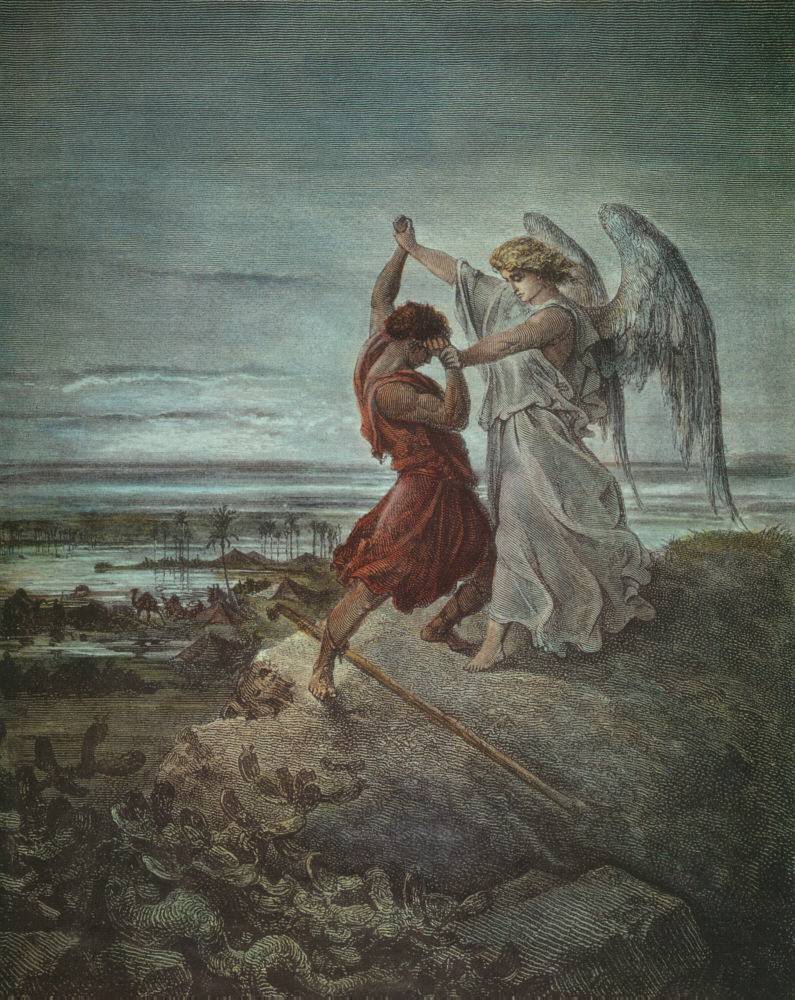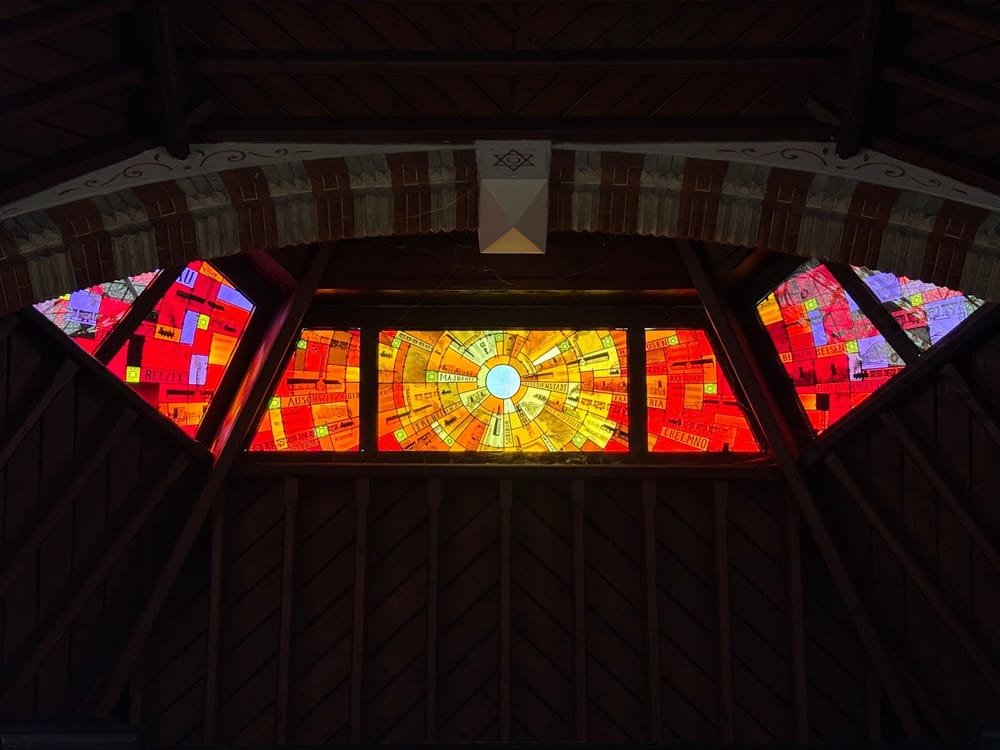
The separation of religion from politics is an ideal regularly espoused and rarely upheld. Judaism is no exception: unwavering support for Israel is so deeply embedded in synagogues, from Reform to Modern Orthodox, that it forms part of Shabbat services.
But if political beliefs reflect deeply-held moral values then perhaps its reasonable – necessary, even – for them to feature in places of worship.
The default assumption that most non-Charedi shuls are Zionist goes some way to explaining why a small congregation in Chicago provoked a stream of furious articles in the Jewish press when it broke ranks with the mainstream.
The seven-year-old Tzedek Chicago describes itself as an “intentional Jewish congregation based on core values of justice, equity and solidarity”. Last year, its board voted unanimously to add to another core value: an explicit commitment to anti-Zionism, replacing its previously stated support for non-Zionism.
Responding to the news in the Times of Israel, Andy Blumenthal accused Tzedek Chicago of “Jew hatred”, while Allison Kaplan Sommer wondered in Ha’aretz whether the move might be simply a “publicity stunt”.
Tzedek’s statement on the landmark decision gives no reason to doubt its sincerity:
While we appreciate the important role of the land of Israel in Jewish tradition, liturgy and identity, we do not celebrate the fusing of Judaism with political nationalism. We are anti-Zionist, openly acknowledging that the creation of an ethnic Jewish nation state in historic Palestine resulted in an injustice against the Palestinian people – an injustice that continues to this day.
In the spirit of celebrating Jews living out their politics not simply alongside but through their Judaism, this week’s Pickle is a dialogue between two Jewish leaders who are doing just that: Leah Jordan, rabbi of Kehillah North London, a young Liberal synagogue in Stoke Newington, and Scout Bratt, board chair of Tzedek Chicago. I hope you enjoy it. - Aron
LJ: Tell us a little bit about yourself and your political journey.
SB: Scout: I'm originally from Kansas City but I have been living in Chicago for the past decade. I grew up in a Zionist home, attending Zionist youth camps and a Jewish day school. After high school I spent a year in Israel which coincided with Israel’s disengagement from Gaza in 2005-6.
I remember on my first day of college back in the US seeing someone wearing a “Free Palestine'' T-shirt – I didn’t really know what that meant. It was only after that I began to recognise that my identity as a young feminist did not align with how I engaged on Israel. I got involved in Palestine solidarity work, first and foremost as a Jewish feminist, and this remains a key framework for my work with Jewish Voice for Peace (JVP), with the Center for Jewish Nonviolence (CJNV) and with Tzedek Chicago, where I’m currently chair of the board.
LJ: What is Tzedek Chicago?
SB: Tzedek Chicago is a congregation founded in 2015. I found out about it through comrades at JVP. I had heard that their rabbi, Brant Rosen, had been facing opposition at another congregation because of his views on Palestine. A year after Tzedek was founded, I traveled to Israel-Palestine with Brant on a delegation with the Center for Jewish Nonviolence. What drew me to Tzedek Chicago initially was definitely my experiences on the ground in Israel-Palestine with Brant.
I was also drawn to Tzedek Chicago because it was a community gathering space dedicated to a Judaism that was not centring Israel. When I joined, the congregation defined itself as non-Zionist. It was about carving out a Judaism that went beyond borders and nationalism, and that aligned with values of justice. This felt very true for me. It means thinking critically about our history as Jews when approaching issues like immigration, advocacy and organising here in Chicago and in the United States; thinking about what it means to live a Judaism of solidarity as a white, Ashkenazi Jew.
I was brought up in Conservative Judaism and have attended and worked in several different congregations, including Reform and non-denominational. Each of these synagogues was explicitly, or by default, Zionist. None were willing to have challenging conversations about Israel; all would recite the Prayer for the State of Israel during services. It was honestly gutting for me to be in these congregations that claimed to care about social justice, that sponsored refugee families, but refused to talk about the refugee crisis created in our name as Jews. That inconsistency was angering and alienating for me, and so Tzedek Chicago was about finding a place in which I did not have to compromise my values in order to feel spiritually connected and in community with other Jews.
LJ: What led Tzedek Chicago to identify anti-Zionism as one of its core values?
SB: We had been having conversations for a while about what it means to be Zionist, non-Zionist and anti-Zionist, and the significance of each of these approaches. A lot of people already assumed we were an anti-Zionist congregation, so we figured it made sense to address that directly.
During the pandemic we made our services and programming available online, which meant it was accessible across the globe and beyond borders – we were truly living our values. That prompted us to think about other ways in which we could properly live out our Judaism. We collectively determined that it required proactively confronting nationalism through taking an explicitly anti-Zionist stance. Declaring your synagogue anti-Zionist directly calls out, and energetically challenges, the prevailing assumption that synagogues have to be Zionist.
LJ: Was there a specific event or moment when the congregation realised it needed to identify explicitly as anti-Zionist?
SB: Over the course of the pandemic, we saw organisations and NGOs, including B’Tselem, on the ground in Israel-Palestine grappling more with the term “apartheid”. That gave us the impetus and courage to push at what is considered possible for Jewish communities.
To say you’re a congregation that rejects nationalism was considered radical step in 2015, and in many ways it still is. But as a congregation made up of activists, we should constantly be thinking about how we can push the conversation forwards. Articulating our anti-Zionism creates space for more folks to move towards the left – because we’ll never be left enough until Palestine is free. Until we can be sure that Palestinians are not killed and dispossessed in the name of Judaism, we have not pushed our politics far enough. It means pressing people to really stand up for the values they espouse, and when doing so with an entire congregation behind you, it’s about people-power and speaking louder with a collective voice.
LJ: I think there's a lot of admiration and perhaps even envy from parts of the UK Jewish left toward Tzedek Chicago and the work that you're doing. In the UK, our politics on these issues are more cautious – partly because we're a smaller Jewish population. What might the UK Jewish left learn from your congregation?
SB: The deep racial unrest in the US fuels our work at Tzedek Chicago in terms of forcing us to take a position that is actively anti-racist, and that was definitely the case around the uprisings in the summer of 2020. I would urge the UK Jewish left to think about the ways in which its own work intersects with broader fights for liberation.
In the US some Jewish communities have a positive narrative, however simplified, about our involvement in the 1960s civil rights struggle, and that's a connection to American history that we often celebrate. So if there are ways in which British Jewish communities see their social justice work as being tied into the broader landscape and history of British Jewry then that could be a way for the work to resonate more widely.
LJ: That definitely resonates. We need to think about how to tell a story with a capital S about Jewish communities and solidarity with the larger world.
One example of where the UK Jewish left hasn’t done a good enough job at that is in highlighting its role in the historic anti-South African apartheid struggle, especially in Britain with its history of colonisation and empire.
One aspect of UK Jewish leftism that I love is that people are willing to talk about how empire and anti-imperialism apply to Palestine-Israel. I don’t think [American Jews] have enough conversations about dismantling empire – that's something the UK Jewish left could lead on.
There are a number of criticisms often directed at those who label themselves anti-Zionist. One that often comes from within the left is that by positioning yourself in opposition to Israel, you are still constructing a Jewish politics with Israel at its centre. How do you navigate this apparent paradox?
SB: Ideally, we would not have to centre Israel in our Judaism in the way that being either Zionist or anti-Zionist implies or necessitates. I hope one day we get there but in the meantime, I think being actively anti-Zionist is a step towards that goal. I also don't think they’re mutually exclusive: you can build a congregation that is centred around something other than Israel while also being overtly anti-Zionist. For example, not reciting the prayer for the State of Israel and incorporating other rituals into services are a way of creating a world of Jewish practice beyond Zionism. However, I think it would be complacent to assume creating a Judaism without Zionism is sufficient, we still have to engage with the many Jewish communities who do centre Zionism.
LJ: I agree, and I think polarisation and agitation can often be a force for good that leads us somewhere. Having said that, how would you ensure that, in creating Jewish anti-Zionist communities as a response to Jewish Zionist communities, we don’t end up turning ourselves into discrete groups which don’t interact with and influence one another?
SB: I think three are lots of ways to be anti-Zionist. Not all people who are a part of Tzedek Chicago will identify as anti-Zionist, and it’s by no means meant to be a litmus test for joining the congregation. Anti-Zionism is one of our core values as a congregation but this doesn’t mean someone who isn’t aligned with anti-Zionism can’t find spiritual connection or meaningful relationships within this community. Our goal is not to be siloed from other congregations – there are congregations outside of the mainstream with whom we seek to be in alignment in terms of practices and frameworks for community building. I don’t want us to disassociate with synagogues who are not anti-Zionist.
It’a also worth remembering that Tzedek Chicago exists beyond the synagogue; it is made up of members who are organisers and educators who live out their values in everyday life, in their workplaces and other communities, where they interact with people from all walks of life.
Our model for Tzedek Chicago is not the only way to push the conversation forward on what it means to be building a Judaism beyond and without Zionism, and other congregations will approach things differently. But it's important that we did this: we’re building on a rich history of anti-Zionist Jews, in 2022.
Another piece of this that feels really crucial to me relates to the need for spiritual support and healing around the overt violence that is committed in our name. I mentioned the pain I feel when I'm at the synagogue I grew up in or a synagogue that I used to work in, where the Prayer for the State of Israel is recited, or there's an Israeli flag with the American flag on the Bimah, and the violence is not named. I think it's important to highlight the way that impacts us spiritually, and our relationships to Jewish identity. I need a place I can go to for support – for me, that place is my synagogue.
Leah Jordan is the rabbi at Kehillah North London synagogue in Stoke Newington. They are a founding member of Na’amod and a co-founder of the Azara Beit Midrash.
Scout Bratt is the board chair of Tzedek Chicago. They are a feminist sexual health educator based in Chicago and an organiser with Jewish Voice for Peace and the Center for Jewish Nonviolence.
Author

Leah Jordan is the rabbi at Kehillah North London synagogue in Stoke Newington. They are a founding member of Na’amod and a co-founder of the Azara Beit Midrash.
Sign up for The Pickle and New, From Vashti.
Stay up to date with Vashti.



